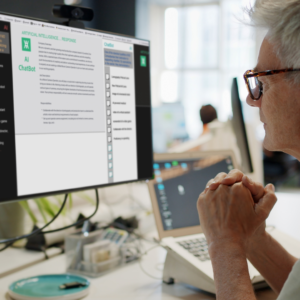Imagine asking Chat GPT for advice and getting an answer that just doesn’t sit right. Maybe it feels too cold, too corporate or too far removed from how you and your community think. That’s not just a tech glitch – it’s a cultural gap.
A recent article on CoinGeek dove into something we’ve been thinking about for a while: AI is only as good as the data it’s trained on. And if that data doesn’t include voices from places like the New Heartland, the results won’t reflect the values that matter most to people here – faith, community and family.
Large language models (LLMs) like ChatGPT, Gemini and Copilot are trained using massive amounts of online content. That sounds great in theory. But if most of that content comes from urban centers or coastal communities, there’s a real risk that it reflects only part of the American experience. The result? Responses that can feel out of step with what matters to folks in the middle of the country.
Why does this matter? Because AI isn’t just powering search engines and chatbots anymore. It’s being used in everything from education to healthcare to hiring. If the technology isn’t picking up on the cultural values that shape how people think and live in the New Heartland, we’re going to keep running into mismatches – misunderstandings that could have been avoided if more diverse perspectives were baked into the system from the start.
The good news: there’s an opportunity here. Brands and businesses that want to connect with New Heartland audiences can use this moment to make their voices heard. Ask the right questions when choosing tech tools. Work with partners who understand regional culture. Push for AI development that’s inclusive – not just of race and gender – but of values and worldviews.
Because when it comes to the New Heartland, values aren’t just personal – they’re generational, deeply held and often shared across communities. They influence how people shop, how they vote, how they raise their families, and yes, how they respond to technology.
AI doesn’t have to get it wrong. But it will – unless more of us speak up and shape the conversation.

